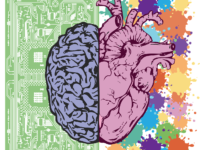The metaphor “brokenhearted” is often loosely used to describe someone experiencing various levels of emotional distress. This term, however, is not always a metaphor. In the case of Takotsubo Cardiomyopathy, more commonly known as broken heart syndrome, the heart rapidly weakens after undergoing extreme stress, causing people to suffer from a literal broken heart.
In the case of Takotsubo Cardiomyopathy, more commonly known as broken heart syndrome, the heart rapidly weakens after undergoing extreme stress, causing people to suffer from a literal broken heart.
Broken heart syndrome is a temporary condition in which the heart fails to pump blood properly due to a change in the shape of the left ventricle, the heart’s main pumping chamber. In certain cases, extreme emotional or physical stress causes this change in shape. The body naturally responds to stress by producing hormones and proteins to counteract it. One important hormone that regulates stress is adrenaline which triggers the body’s fight-or-flight response in the presence of a possible threat, such as a stressful or frightening event. Adrenaline functions by raising energy supply, blood pressure, and accelerating the heart rate. If excess adrenaline is produced, the small arteries that supply the heart’s blood may restrict, limiting the amount of blood flowing into the heart and ultimately causing broken heart syndrome. Extreme emotional events that essentially stun the heart could trigger these changes. Such events may include car accidents, intense fear, a sudden drop in blood pressure, or domestic violence. Even positive events such as winning the lottery or an overwhelmingly exciting surprise can cause a broken heart.
Even positive events such as winning the lottery or an overwhelmingly exciting surprise can cause a broken heart.
The syndrome is often mistaken for a heart attack because the main symptoms are similar to those of a heart attack. Both afflictions involve shortness of breath, intense dizziness, severe and sudden chest pain, and excessive sweating. Unlike heart attacks, broken heart syndrome does not involve the obstruction of the coronary artery. It also causes abnormal movements in the left ventricle of the heart. This ballooning causes the left ventricle to resemble a vessel used to catch a type of octopus called tako-tsubo, which is why “Takotsubo Cardiomyopathy” is another name for the syndrome.
Although many of the symptoms of broken heart syndrome can be life-threatening, the condition may rapidly improve if patients receive proper care. Treatment depends on the severity of the symptoms, but most of the time standard heart failure medications can restore the heart’s normal conditions. These medications include water pills, beta-blockers, or aspirin if the patient’s symptoms include plaque buildup in the artery walls. Death and other complications such as abnormal heart rhythm, obstruction of blood flow, or complete rupture of the ventricle wall are possible outcomes of the syndrome but rarely occur. Normally, the ballooning of the ventricle wall clears within one to four weeks of diagnosis, and most patients fully recover within two months.
Not everyone is at the same risk of developing this syndrome, and it has been found that older women have a much higher chance of experiencing it. An article provided by the Cleveland Clinic reports that about 88 percent of all reported cases have been women between the ages of 58 to 77 years old. The hormone estrogen protects the heart from the effects of other potentially harmful hormones, but levels of estrogen decline in aging women. This could explain why older women are more prone to heart damage under extreme stress. Overall, the number of reported cases of broken heart syndrome is seemingly low. According to a study published in the Journal of the American Heart Association, 135,463 cases of the syndrome were reported in the United States from 2006 to 2017. However, these numbers may not be very accurate, as the condition is often mistaken for a heart attack.
Although there are currently no medical treatments to prevent this syndrome, people can reduce the chances of suffering from a broken heart by learning how to manage stress effectively, exercising regularly, eating healthily, practicing mindfulness, and taking time to relax.
Sources: Journal of the American Heart Association (2021). DOI: 10.1161/JAHA.120.019583






